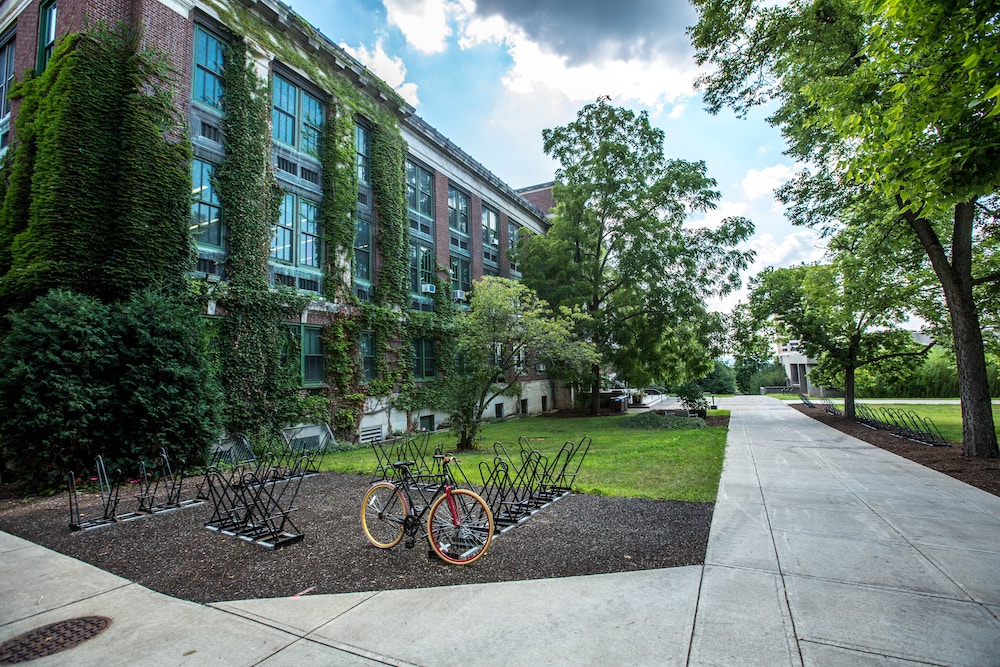
David Coleman, CEO of the College Board (a company I can’t say I am a huge fan of most of the time — because I am anti-testing) wrote an article that had some wonderful points, and that I hope is an honest reflection of perspective the company is taking into consideration. All of us in this business (those of us with a heart, morals, etc.) do, I believe, think deeply about the impact of our work. Are we hurting or helping? It’s a fine line and a question that I hope my clients and the readers of this blog know that I think about a lot. I hope to always keep my work in “check” in this way, and make sure my values (integrity, empathy, transparency) and my team’s approach to this work is known:
Ensuring students have appropriate college options is our top priority. In order to make this happen, we aim to set realistic expectations and attainable goals. Once realistic expectations are established and viable goals set, we provide students with the guidance, resources, and support they need to navigate the admissions process successfully. In doing so, we aim to help students create the time and space necessary to work smarter, not harder.
We strive to empower students and believe that a student-driven approach to finding best-fit colleges and universities is the only appropriate approach. Finally, we believe that transparency—around all aspects of the college admissions process—matters. We hope our honesty and expertise can demystify the college admissions process so that students can tackle their applications and make final decisions with confidence.
We also strongly believe that the process of drafting and revising application essays is the first step toward becoming a college-level writer. With that in mind, we view our role in the essay process as closer to that of a tutor than an editor; all edits and comments are not simply corrective, but also instructive. Through reviewing and actively engaging with our feedback, each student can improve as a writer and as a thinker throughout the essay-writing process—arriving at college more than ready to tackle the heavy writing load.
Anyway, here’s the article—highly suggest counselors, students, and parents give this one a read!
—
The crazed pursuit of college admissions helps no one thrive. And while the Varsity Blues admissions scandal shines a light on families that break the rules, it’s time to consider the unhappiness of families that play by them. While competition for seats may be inevitable, students scramble to do ever more to get into college—and give away more of their childhood to do so. This competition might seem a problem only for middle class and wealthy families. But students of modest means suffer most when applying to college becomes an endless list of tasks requiring time and other resources.
As the CEO of the College Board, I see this arms race up close. We administer the SAT, a test that helps admissions officers assess the reading, writing, and math skills of students across the country and around the world. We also administer the Advanced Placement program, which helps students earn credit for college-level work they do while in high school. We know these tools to be useful, but we also see how they can contribute to the arms race. The College Board can and will do more to limit the excesses—more on that below—but there is more at stake than which tests kids take or don’t take.
The statistic that should worry us most is this one: According to a 2014 study by Gallup and Purdue University, only 3 percent of students have the kind of transformative experience in college that fosters personal success and happiness. Three percent. Even as the pressure of college admissions haunts students throughout their adolescence, whispering premature anxiety into questions of what to learn and how to spend time, the admissions process as we know it often misses the heart of the matter: What kind of education is really worth investing in? What is it that students should be doing, not just to get into college, but to succeed there and live a good life after they graduate?
Having listened to hundreds of admissions officers, school counselors, parents, and students, and after reflecting on my own experience, I believe there is a healthier model to prepare young people to excel. There are durable ways to invest in children that will help them thrive in college and beyond. As the Varsity Blues scandal works its way through the legal system, the broader question is whether there’s a productive path out of the current admissions madness—a way to fill students not with anxiety, but with a deeper devotion to learning.
In the Gallup-Purdue study, the type of college that students attended affected their sense of well-being after graduation more than what they experienced at whichever institution they chose. The 3 percent of students whose lives changed for the better—who, according to Gallup, had the types of experiences that “strongly relate to great jobs and great lives afterward”—had three features in common: a great teacher and mentor, intensive engagement in activities outside class, and in-depth study and application of ideas.
These three shared features are all about intensity—not just participation in college life, but active engagement. They require students to move beyond merely doing something and toward becoming devoted to something. They require a depth of commitment that will serve students well throughout their lives. And yet nearly nothing in the admissions process tells students that these are the keys to their success.
1. Find great teachers.
At the College Board, we regularly convene first-generation students on the threshold of college to help them plan their future. These students have been remarkably resourceful in navigating their path to college, yet they have much less to say about how they will succeed once there. I have asked hundreds of high-school students what choices they will make in college that will most shape their success. Students talk about which major they will choose, who their friends will be, or which clubs they’ll join. They never say that their most important decision will be who their professors are. In general, students are extremely passive about seeking out great teaching.
Outside of family, though, no single factor comes close to the impact of a great teacher on students’ success. Former U.S. Education Secretary John King describes how a New York City public-school teacher effectively saved his life after he lost his mother and father. He says that as a young African American and Puerto Rican man from Brooklyn in a family in crisis, he might well have ended up “shot or in prison” but for great teaching.
Even for students who confront far fewer challenges, seeking out and finding the right teachers pays enormous rewards. In my high school in New York City, there was a tough and engaging teacher named Mrs. Grist. I asked whether I could take her government class, and I went on to study psychology with her as well. Mrs. Grist was among the most forbidding people I had ever met, yet she made the subjects she taught intense and urgent. I was stunned when she asked me whether I needed a recommendation for college. Her offer gave me confidence in my step, as if her hand were behind me.
Mrs. Grist’s approach to teaching helped transform my college life as well. I arrived at college disoriented by large lectures and huge reading lists. I knew I was a slower, more deliberate reader. I could be intimidated by racing through books I did not understand. I was not self-sufficient to do my best work on my own and needed a great teacher to inspire me.
So rather than accepting the typical first-year roster of large introductory courses, I began a hunt. I used those first days of the semester, before schedules were set in stone, to find classes where I felt at home. I will never forget how much I relaxed when I walked into a small philosophy class that taught only one book. Instead of racing through a book a week in a big survey course, I immersed myself in the world of Plato’s Republic with a gifted teacher, Professor Ferrari. Rather than dazzling us with his expertise, he asked questions as if he, too, were reading the book for the first time.
In effect, I was attending a very different college from that of so many of my classmates. They carried around piles of books that they might at best skim before class; I was kept up at night by the handful of old books on my shelf. They were more engaged in what was going on outside class, and studied in binges for midterms and finals; I read my few pages, often with a sense of defeat, but there were moments when the centuries separating the authors and me would melt away. I worked daily for my teachers—looking forward to the next conversation, usually in class, sometimes in office hours, where I seldom saw another classmate. All these students who had fought so hard to pry open the doors of college didn’t know to knock on their teachers’ doors.
Finding great teachers and insisting on learning from them is a form of resistance. You must push the rules and the system. One of the most misleading things we say in education is that a good school will “give you an excellent education.” A great education is never given—it is taken. The ancient myth of Prometheus is more honest; the gods do not give Prometheus the flame—he steals it.
2. Pick an activity (or maybe two).
Religious tradition testifies that immersion changes lives. Research agrees; the College Board reviewed dozens of studies to find the factors that most predict success. After grades and test scores, the factor that most predicts college success is follow-through—that is, students’ sustained effort and growth in one or two extracurricular activities while in high school. Students who devote themselves to an activity are more likely to succeed later in areas such as campus leadership and independent accomplishment.
Devotion to one or two activities—not several—advances you. Competition to get into college has metastasized into a race where more is better. We have sacrificed the productive ideal of nurturing excellence in one thing for the mad rush to submit a résumé of too many things.
The typical application for college today has eight to 10 spaces for students’ activities outside class, and parents and students have become convinced that the more spaces filled, the better. Long lists cultivate busy mediocrity rather than sustained excellence. To get into college or to earn scholarships, it is much more effective to be very good at a small set of things than to check off a long list.
MIT recently revised its application to include only four spaces for extracurricular activities, and admissions officials there are evaluating whether they can move to three. Brilliantly, the school also removed the space for students to put any activities from ninth grade on their application. From MIT’s point of view, ninth grade is a safe harbor—a year to change your mind, to try different things without regard to your track record.
MIT is not alone. “Not only at Maryland, but broadly across the admissions community we’re more interested in the few things students are devoted to over a sustained period of time rather than a long list,” says Barbara Gill, associate vice president of enrollment management at the University of Maryland.
Time is one of the great inequalities in our society. The Harvard researcher Richard Weissbourd is right to demand that college applications honor the work some students do to support their families. For lower-income students, it is defeating to ask them for a long list of activities outside class. We need to do all we can to ensure that they have the time, resources, and space to pursue passions in-depth outside class—but also not penalize them if work and family obligations get in the way.
In wealthier communities, the scramble for credentials often leads to premature professionalism and intensive regimentation. These artificial structures we invent to fill applications hinder the development of genuine interest and commitment. Young people become less authors of their own fate than soldiers enacting the battle plans of their parents.
Personally, I was lucky. In high school, I began debating and found that I loved it. (My parents didn’t share my enthusiasm—after debate practice, I was too argumentative—but they left me to it.) I didn’t have much else going on outside class, so I could fill my time researching evidence and practicing for the next fight. But I wonder how today’s overscheduled students find time to explore any one extracurricular—whether it’s a sport, a musical instrument, or anything else worth doing—in any depth. The key challenge for our young people is not to master more activities, but to learn that mastery requires doing one thing at a time.
3. Learn to love ideas, even when it hurts.
The luckiest people in life develop enduring fascinations and spend time honing their skills and learning new ones. They experience regularly the internal satisfaction that arises from encountering new ideas. With its focus on external measures of success, such as grades and test scores, the college-admissions scramble does little to communicate the importance of growth and exploration. For young people to be happy in college—and to excel there and the rest of their lives—they need to open themselves to new subjects and ideas that can captivate and motivate them. That process necessarily includes doing things they might not immediately like.
Most of the time, we misunderstand how students learn to love a subject. Listen to parents talk: My child loves math. My child loves to read. When parents say this, they mean their child enjoys something and is good at it. It sounds harmless and encouraging, but it excludes the possibility that children might someday find meaning in ideas and subjects that do not come easy to them. Difficulty can be the starting point of love, rather than a signal to abandon the subject matter entirely. To say I hate math is to say that you retreated too quickly. The question is not whether you like or excel at a subject from the outset, but whether the subject is lovely and worth knowing. Loving to learn requires that you move beyond your initial distaste to discover a subject’s power.
Particularly destructive for aspiring college students is the myth of the “numbers person” or the “word lover,” ignoring the fact that we all have minds and hearts capable of both. (Feeling at home in both domains also makes tests such as the SAT and ACT much easier.) If you don’t at first like math, seek out a better teacher, practice harder, find a connection to something else that interests you. The paradox of loving to learn is that it requires managing pain.
Being a good learner does not require that you keep doing everything without any regard to whether you enjoy it; pleasure must emerge as an essential dimension to those areas to which we devote ourselves. But even when you are engaged with a subject you love, it too can be difficult and forbidding at times. Yet even when you love something at first and are drawn to it, devotion sustains you when it becomes difficult and forbidding. We know that people love to read when they are first defeated by a book, and then reread it to see what they missed.
We need to dispense with platitudes such as “Learning is fun,” and instead admit that learning is often painful. A real love of ideas begins when students stop doing only what they are good at and realize that through practice they can discover new worlds of understanding and joy.
Even without federal indictments of parents who sought an unfair advantage, it’s clear that the American college-admissions system has created unproductive anxiety among families while doing little to foster the kind of devotion to learning that makes an education meaningful. All of us who are involved in this system—including the College Board—should reconsider what we can do to stop the madness.
Advanced Placement can help students discover and pursue a passion, but not if too many courses suffocate their time. Some students cram their schedules with AP courses to burnish their applications. While data show that taking up to five AP classes over the course of high school helps students succeed in college, there is no evidence that more than that is better. We therefore recently announced that taking more than five AP courses should provide no advantage in admissions. Students can take more AP if they want, but not to get into college.
And we need a far humbler view of the SAT. When the SAT began, it was an aptitude measure designed to gauge intellectual potential. We revised the exam in 2014, and the era of trying to measure aptitude is finally over. The new SAT assesses nothing tricky or mysterious: a focused set of reading, writing, and math skills students learn in school and use widely in college. The new SAT does not tell students or anyone else how smart students are, or how capable they are of learning new things. It only says something about whether students have yet attained the reading, writing, and math skills they will use to gain knowledge in college or career training; it makes no statement about what they are capable of learning.
We need to change the culture around exams such as the SAT. They should never be more than one factor in an admissions decision. Low scores should never be a veto on a student’s life. Students should have confidence that if they practice their math and reading skills, they will improve, which is exactly what we are seeing when students practice for free on Khan Academy. Students should take an exam once and, if they don’t like their scores, practice and take the test once more. If they still don’t like their scores, we should offer many other ways for them to show their strengths to admissions officers.
Let’s fashion a new invitation to higher education. We must invite families to invest in durable excellence rather than fragile perfectionism. Students should sacrifice far less for the sake of getting into college and do much more to thrive within and beyond it.
This article originally appeared in theatlantic.com
*Stay in the know! Subscribe for news, tips, and advice*








